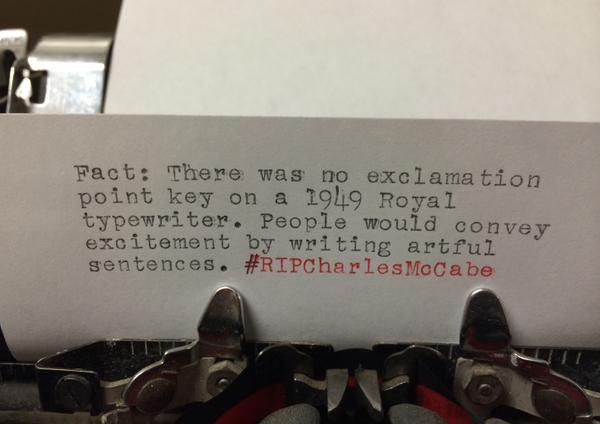
But if you ever used an old-fashioned typewriter, you should remember the workaround - single quote, backspace, point. Numerous people leaped onto Twitter to point out this error.
Which raises the question - how do tricks like this get erased from the collective memory?
Another forgotten trick is the fade-out at the end of a pop single. This was sometimes used to conceal flaws in the recording, but was sometimes used as an artistic device. Indeed, the fade-out at the end of the Beatles' Day in the Life was engineered to last for an unnaturally long period. Nowadays, the fade-out isn't thought to suit the way music is consumed, and is typically only used for retro pieces such as Robin Thicke's Blurred Lines.
William Weir, A Little Bit Softer Now, a Little Bit Softer Now … (Slate, 14 Sept 2014)
Obviously our sense of the possible is influenced by present and future technology, but it is also influenced by our experience of past as well as present technology. New technology occasionally allows people to do things they didn't know they wanted to do, but it often merely finds more streamlined ways of doing things that people could already do if they were sufficiently determined and ingenious. Look at Delia Derbyshire and Karlheinz Stockhausen, synthesizing highly original music without the aid of commercial synthesizers. Whereas if you use the same tools as everyone else, you may struggle to produce music that doesn't sound the same.
Related posts
Art and the Enterprise (March 2006)
Karlheinz Stockhausen (December 2007)
No comments:
Post a Comment